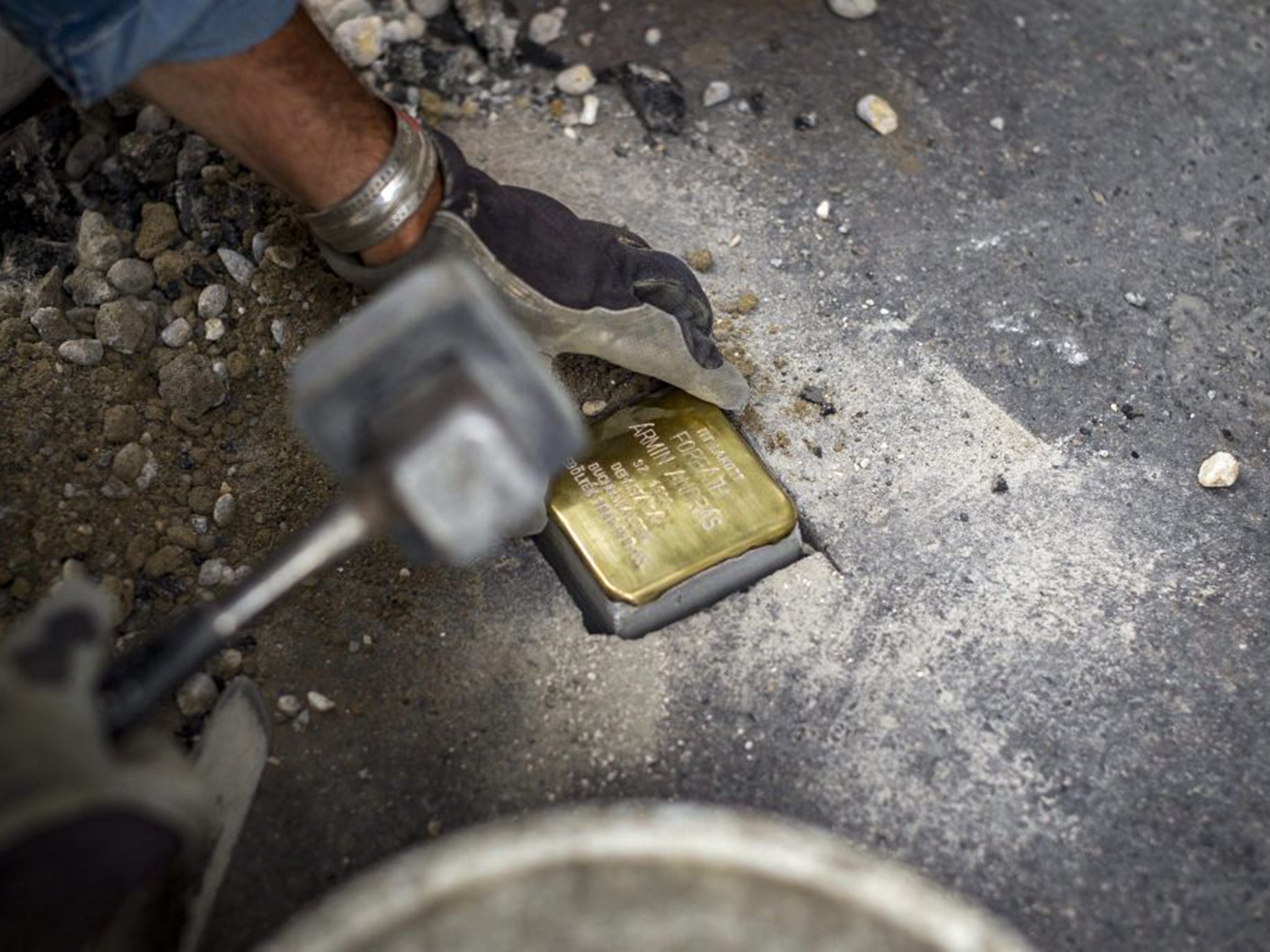Holocaust memorial plaques: Are Munich's 'stumbling stones' a tribute to the Nazi's victims – or an insult?
The city's conservative-led council has voted by a large majority to continue an 11-year ban on them following objections from a Jewish community leader

Munich – once notorious as the capital of the Nazi movement – is embroiled in a bitter row about Holocaust commemorations after the city upheld a ban on memorial plaques because of objections from a Jewish community leader.
There are tens of thousands of Stolpersteine (“stumbling stones”) across Europe. Invented by the German artist Gunter Demnig in 1996, brass plates the size of cobblestones are sunk into pavements outside the homes of the Holocaust victims whose names they bear. But following a heated debate about the issue this week, Munich’s conservative-led city council voted by a large majority to continue an 11-year ban on them following objections from Charlotte Knobloch, who chairs Munich’s Israelite Cultural Community (IKG).
Ms Knobloch, 82, a former president of Germany’s Central Council of Jews, has repeatedly argued that, despite the intent, the stumbling stones desecrate the memory of Holocaust victims. “People murdered in the Holocaust deserve better than a plaque in the dust, street dirt and, even worse, filth,” she said. Although her views are not echoed by Germany’s current Central Council of Jews, which supports the concept of stumbling stones, Munich city council nevertheless decided to uphold its ban. “We cannot ignore the views of the IKG,” insisted Alexander Reissl, the leader of the Social Democrat group on the city council.
But concentration-camp survivors and victims’ families said that they would start legal proceedings to overturn the ban. Terry Swartzberg, an American who has lived in Munich for 30 years, is an ardent supporter of the stumbling stones and recently organised a petition against the ban which was signed by 80,000 residents.
“The city council’s decision is a disgrace,” he told The Independent. “It was an exercise in arrogance and a bad day for democracy.”
Munich’s 10,000-strong Jewish community was reduced to just seven by 1944. The handful of brass stumbling stones in the city can be found only in private gardens, where they are hidden from public view. In a compromise, the council agreed to permit the installation of wall plaques on buildings once inhabited by Holocaust victims. However, the fight to win consent for stumbling stones is certain to continue.
Mr Demnig began his project in 2000 to commemorate Jewish victims of the Holocaust, as well as Sinti and Roma gypsies, homosexuals, Jehovah’s Witnesses, blacks, Christians, Communists and disabled people slaughtered by the Nazis.
By November last year, more than 48,000 stumbling stones had been placed in 16 countries across Europe.
Subscribe to Independent Premium to bookmark this article
Want to bookmark your favourite articles and stories to read or reference later? Start your Independent Premium subscription today.
